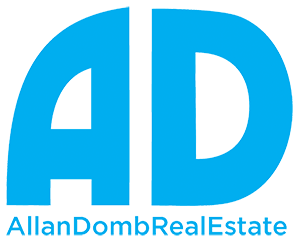Inventories hit an all-time low while sales hit a new post-recession high.
September 6, 2018: Hot sales activity, chilly inventory numbers and mixed prices characterize the current state of Philadelphia’s condo market. Here’s the latest numbers, courtesy of Allan Domb Real Estate:
- The average price of Philadelphia’s condos declined by 1.4% on a quality- and seasonally-adjusted basis in Q2. This follows a decline of 0.2% in the previous quarter. By contrast, Philadelphia house prices increased by 0.9% during Q2. This is only the second time that there have been back-to-back quarterly declines in citywide condo prices since the market’s current expansion began in 2012.
- Median condo prices were essentially flat in Q2. The median condo price in Philadelphia in Q2 was $301,500; barely changed from $300,000 in the previous quarter. Residential real estate prices typically rise during the warm spring months. The reason that the condo price index shows a decline while the median price does not is because the regression which computes the price index controls for seasonal fluctuations. These combined results suggest that this quarter’s condo market experienced less-than-average price appreciation than has been historically typical for this time of year.
- Even with the latest decline, Philadelphia’s condo prices still remain positive on the year, and are still ahead of house prices. Average condo prices are 1.4% higher than they were one year ago, while average house prices are at exactly the same level as they were one year ago.
- But, price changes showed significant variation across submarkets in Q2. From smallest to largest, the average change in condo prices in Q2 by submarket was: Washington Square (-12.6%), Other Center City (-6.3%), North Philadelphia (-6.0%), Art Museum/Fairmount/Brewerytown (-2.8%), Rittenhouse Square (-2.0%), Northern Liberties/Fishtown/Kensington (-1.2%), Avenue of the Arts (-0.5%), Old City (-0.4%), South Philadelphia (-0.2%), Northeast Philadelphia (+0.6%), Northwest Philadelphia (+2.9%), West Philadelphia (+2.1%) and University City (+4.9%).
- Condo prices bucked a significant post-recession trend in Q2. In sharp contrast to the last six years, the more outlying neighborhoods of Philadelphia experienced positive price appreciation while the relatively more core submarkets in and around Center City generally experienced negative price deflation this past quarter. Historically, condo price growth in the Northeast, Northwest and West Philadelphia has lagged that of downtown, and usually by a significant margin.
- Unlike prices, condo sales volume soared to a post-recession high in Q2. 824 condo units changed hands in Q2, up 23.5% in the same quarter one year ago[1] and up a whopping 75.3% from the previous quarter. This was the highest quarterly volume of condo sales since 2007.
- But, sales volume of million-dollar sales actually slowed in Q2. There were 31 condo sales at prices of $1m or more in Q2. This was down from 36 such sales in the previous quarter and down from the all-time record of 51 such sales in the same quarter last year.
- Inventories remain very low. There are currently 712 condos listed for sale in Philadelphia. This is down from 756 listings one year ago, and continues a downward slide that is now more than ten years old.
- Philadelphia’s condo market can now be officially characterized as a “Seller’s Market”. The current low level of supply combined with the exceptionally high demand would exhaust the market’s current amount of for-sale inventory in just 4.3 months, which is down from 5.2 months this past winter. Most real estate analysts consider a supply of less than 5 months to be a seller’s market, in that market conditions favor sellers over buyers.
The current condo market is mirroring the housing market’s unusual combination of strong sales, cooling prices and very tight inventories. Typically, such combinations can signal an impending change in the market’s direction. However, unlike Philadelphia’s housing market, the condo market has experienced a much softer rate of growth—especially in price appreciation—since the current expansion began six years ago. Unlike house values, many condo values still remain below their pre-recession peak of mid-2007, especially in those neighborhoods located further from Center City. So, unlike the market for single-family houses, the condo market would seem to still have significant room for further expansion before entering a contractionary phase.
Said Allan Domb, principal of Allan Domb Real Estate: “While I am seeing signs of a seller’s market, namely due to a lack of inventory, prices seem to have stabilized for condo product under $750,000. I attribute this to two things. The first is a slight increase in interest rates, which affects affordability. And the second is the abundance of new apartment units in Center City and University City which has caused an adjustment in the rental market, and therefore decreased demand by investors. As rental inventory is absorbed, buyer demand will increase and prices should rise. Condos over $1 million in the core neighborhoods of Center City continue to be in high demand thanks to baby boomers returning to the city for a more urban lifestyle. I believe any decrease in the number of those sales is only seasonal.”
Email for Kevin Gillen: Gillen@AllanDomb.com
Since property transactions in this region tend to be highly seasonal, it is more commonplace to compare transactions volume in a given period to the same period one year ago (when the same seasonal conditions prevailed) rather to the immediately preceding period.
